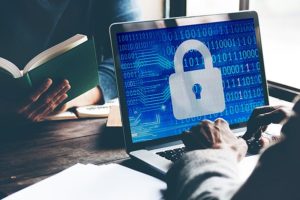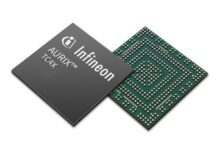
If you think cybercrime only target big organizations or give threat to national security, then you are wrong. You can also be victim of cyber attack whether you are individual but will be definitely be associated with some organization. Have you ever wondered how search engines closely monitors your previous time searches and provides best results and you say Ah that’s what I want, so as hackers.
In era of digital world where number of networks, no of smart phones usage are exponentially increasing with each passing day personal cyber security has become as important as need of electricity to these devices. Hackers have variety of tools by which they can harm important data. Be it a email attachments that can contain malicious viruses, websites or any harmful system program. No one even knows when you’re social account or other accounts used by terrorist so there is strong call to protect your data from an intruder.
Traditional firewalls and antivirus software does not guarantee you complete protection from cyber threat as If you neglect new ways to protect your personal data then it can not only be harmful for you but your colleagues, personal environment and your organization. Let us see how we can maintain personal cyber security in connected world (IoT) where each bit of your data is not secured.
- Be attentive for your online presence
Whenever you surf on net take care of websites you are going to visit, unknowingly they can steal your important details. Aware of phony websites which ask for your personal details, use search engine to land up your search to correct web pages otherwise typo squatting will haunt you. While working you often came across of pop-ups which display warning that you device is infected never click or respond to such messages until and unless you have paid to such services.
- Take care of your favourite social online visits and online shopping
If you use online transactions frequently or your data, passwords or work place details stored somewhere in web you can be easy victim to attack. Always delete your card details from your trusty online shopping portal. Addition to these preventive measures, whenever you jump to payment page do not forget to watch lock symbol on your browser which implies that site is using scrambling and encryption to protection. Before clicking to any new link send by you’re so called online friend which is still unknown to you same follows with when you chat on messenger or use email. It can take you to some fake website which asks your information or some malware can be downloaded.
- Use secure network
Network comes next to physical layer of communication which is most easy way a hacker can create threat. Change router administrative password frequently and enable firewall on router. Always set up your router so that access can be given to only those passwords which are encrypted. Always use secure network because we don’t know whether our data packets are travelling to destination or not.
- Don’t rely on technology completely
Proactively stand for your personal cyber security by using passwords which are solely guessed by only you use alpha numeric passwords with different sequence. Keep constant check on your credit or debit cards online statements. Get yourself aware of new trends and new hacks of cyber security. Backup your data regularly. Update your operating system for latest security patches.
Personal security threats and trends:
No matter you are working in a corporate or accessing your personal emails, phishing emails remain the most popular method to deliver malware. A recent worldwide ransomware cyber attack, “WannCry” was also delivered to victim’s computer through emails. Here are some of the cyber security trend and threats commonly used to target victims.
Phishing: Phishing is the most common tactics used by cyber criminals to obtain victim’s personal data like username, passwords and credit card details. Phishing is typically carried out by email spoofing or instant messaging and it often direct users to enter personal information at a fake website which looks and feels like original one. Let’s take an live example, you are working on a phishing infected system and making a payment at an ecommerce website, once you proceed to payment a fake banking page opens at your system which exactly look like the original one and ask you for your credit card detail. Once you submit your detail on this page, your detail will be transmitted at attackers system without your knowledge.
Malware and ransomware: A recent ransomware cryptoworm have infected more than 230,000 computers in over 150 countries which was delivered using phishing at victim’s computer. This is a cryptoworm application which targeted computers running the Microsoft Windows operating system by encrypting data and demanding ransom payments in the Bitcoin cryptocurrency to unlock the data.
DDoS attacks leveraging the Internet of Things (IoT): A recent DDoS attack was Mirai, which attacked victim’s system through IoT based surveillance camera. Let’s take a live example, you are using a smart coffee machines which acts on your voice command, if this smart coffee machines is infected it may not work on your command and may produce undesired results.
Key Logger: Key Loggers are the software used to record key board strokes. Let’s take an example, if you are working on a system infected with key loggers, whatever you enters from your keyboards will be recorded and transmitted to attacker without your information.
If you have tried everything and still need personal assistance to protect your personal data from cyber attack you can go with Rubica, a personal cyber security service provider, based out of San Francisco, USA. Rubica has come up with a unique idea to protect you and family in this digital world by monitoring your devices in back-end and only alert you when they find any criminal or cyber theft activity. They also suggest you the way to protect your data and device in case of any cyber attack on your devices.


















